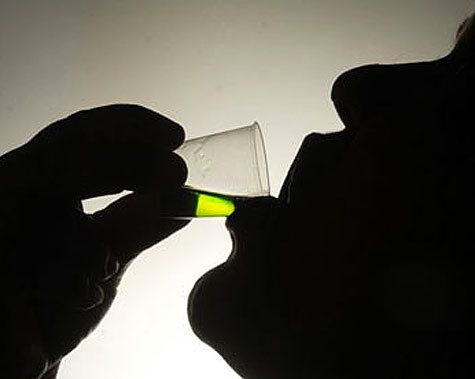Medical expert of the article
New publications
Methadone reduces the risk of HIV infection
Last reviewed: 01.07.2025

All iLive content is medically reviewed or fact checked to ensure as much factual accuracy as possible.
We have strict sourcing guidelines and only link to reputable media sites, academic research institutions and, whenever possible, medically peer reviewed studies. Note that the numbers in parentheses ([1], [2], etc.) are clickable links to these studies.
If you feel that any of our content is inaccurate, out-of-date, or otherwise questionable, please select it and press Ctrl + Enter.
Methadone reduces the risk of HIV transmission in people who inject drugs, according to an article in the online journal British Medical Journal.
The research was conducted by an international team of scientists led by Julie Bruno from the Department of Family Medicine at the University of Montreal.

"There is direct evidence that opioid substitution therapy (methadone maintenance therapy) is one of the most effective treatments for addiction to opiates such as heroin. However, the impact of substitution therapy on the transmission of the human immunodeficiency virus has not been studied. This study confirms the effectiveness of methadone not only as a treatment for opioid addiction, but also as a means of significantly reducing the risk of HIV transmission," says Dr. Bruno.
"These findings are of great importance given the fact that the number of HIV infections among injection drug users is increasing in a number of countries where methadone maintenance therapy is banned," added the study's lead author.
Injecting drug use is the main risk factor for the transmission of HIV and AIDS. It is estimated that about 10% of HIV infections are due to injection drug use.
Methadone and ibuprofen are the main drugs prescribed to drug addicts as substitution therapy.
The data obtained is the result of painstaking research by scientists from Canada, the USA, Australia and Italy, who united to determine how effective substitution therapy is in the fight against HIV.
Specialists monitored 23,608 drug addicts aged 26-39. During the observation period, 819 cases of infection with the human immunodeficiency virus were recorded.
After analyzing the data, experts concluded that during the use of substitution therapy, the risk of infection in patients was reduced to 54%.
According to the scientists, it is too early to say that methadone is used as a protection against HIV, because it is necessary to exclude all possible inaccuracies in the study. However, Dr. Bruno hopes that further research in this direction will help to advance substitution therapy for injection drug users.


 [
[